High-Impact Practices Active Engagement in Freshmen Seminars to Cultivate Critical Communication Skills
Dr. Carolyn Shaw, Professor, Wichita State University
Dr. Kimberly Engber, Dean, Wichita State University Cohen Honors College
Dr. Kelly McFall, Director, Newman University Honors Program
Dr. Kevin Harrison, Assistant Professor and Director of Diversity, Equity and Inclusion, Wichita State University
As American society continues to grapple with ideological polarization, we find it increasingly important that our students develop skills to gather reliable information, establish thoughtfully informed opinions, and communicate them in a respectful and articulate manner. One way we develop students’ skills in these areas takes place within our first-year seminar classes for Honors students. Although each section has a unique thematic focus determined by the course instructor, they all strive to enhance skills necessary for freshmen students to think critically about the world in which they live and better understand their place within it. Four of Honors faculty share how they design their first-year seminar courses to help students develop skills to have hard conversations related to a range of contemporary issues. It is our hope that by developing these skills early, they will serve students well throughout their college experience as they confront many other challenging questions in their studies.
Shaw: I deliberately design my first-year seminar, “Me and My Place in the World”, to build a strong sense of community and trust so we can take on the challenge of sharing diverse views in class. This involves self-reflective surveys and exercises, interviews with others on campus, and discussions around identity. Students discover the value of shared views and experiences as well as an appreciation for differences. In the second half of the semester, they research a global problem that is of personal interest. They then connect with peers in Brazil to compare regional impacts of the problem and possible solutions. This broadens their global perspectives and develops consensus building skills.
Engber: My Honors first-year seminar “Discovering Humanity” situates the campus common read within a traditional humanities approach. Students address the big question “What does it mean to be human/ humane?” across readings that range from Seneca to Henry David Thoreau, Robert Frost, Joy Harjo, and Harper Lee. Some semesters have required student service-learning projects. Students complete an iterative research assignment that focuses more on process and question development than on argument and content. They present their process and findings in small groups.
McFall: My freshman Honors seminar employs a series of role immersion games from the Reacting to the Past Series to engage students in a series of fundamental questions about how societies organize themselves and decide questions of justice and equity. By placing these debates in the past, students are able to practice disagreeing passionately but respectfully. By playing competitive games in a carefully constructed environment, students learn to respect and value each other. And, by allowing students to take control of the classroom, they learn skills of facilitation, team-building, persuasive communication and discernment. Games vary each year but might invite students to consider how to address the legacy of past discrimination, how wars end, and how to try to structure a multi-ethnic, multi-religious society in a way that maximizes the possibility of peace and prosperity.
Harrison: Cultural and Community Connections is a course that explores the desire to be heard and understood and the significance of such. Students begin the semester grappling with the question “What is my story? The final assignment requires them to answer the question they have explored all semester through a partially reflective and partially research-based presentation entitled “This is My Story!”. These explorations are guided by discussions, lectures, and collaborative assignments that examine social justice, history, race, and various power dynamics in a manner designed to get students to think about the various communities they represent, how these communities came to be, and the cultural norms, celebrations, and traditions that have emerged from their respective communities. The overarching message is that if we do not control our own narratives, then someone else will tell our stories incorrectly, so while we do spend time looking at the history of various voices being systemically suppressed, we also examine champions who have made significant sacrifices that empower all voices to be heard. The ultimate goal is for students to develop a better understanding of who they are, why they matter, and the importance of their identity and the way they see the world. As part of this, every student is constantly reminded that they represent prior generations who have made their college and career dreams a reality, and therefore their success is an obligation, not an option!
